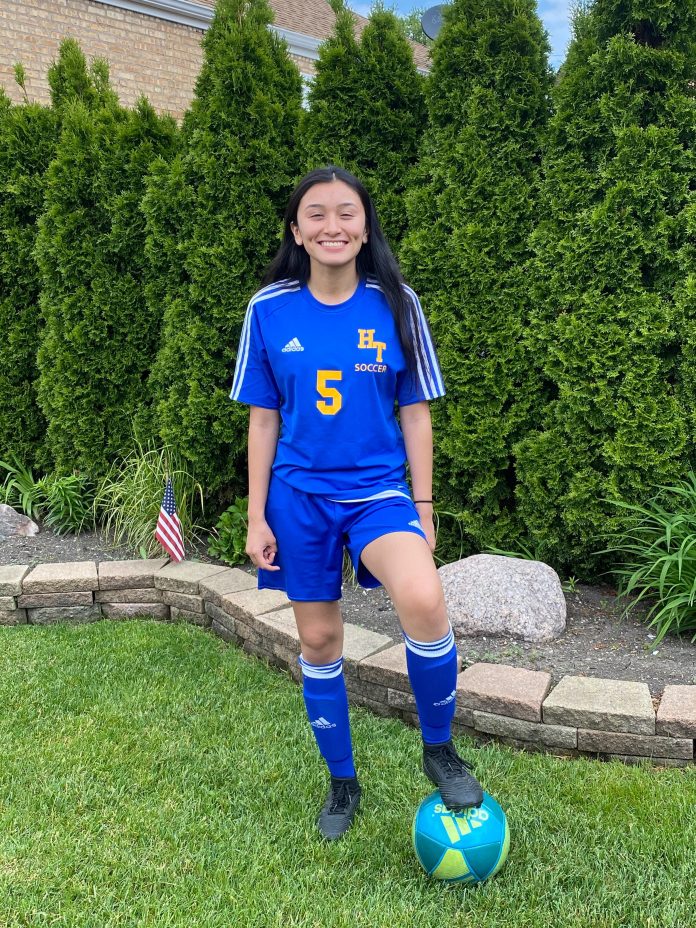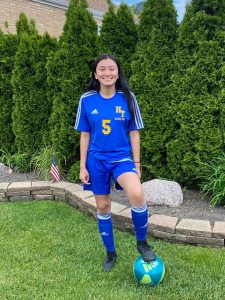
Whether learning from home or on campus, first-year students have redefined what it means to be a Tiger amidst the social, academic, and structural changes. Though most first-year students made the choice of commuting or residing on campus, there were many who decided to go completely remote for this semester, leading to new experiences for both remote first-year students and mentors.
First-Year Trials and Tribulations
Atzihri Guido’s first semester of college has been a huge adjustment for her. Going from her last semester as a senior in high school, Atzihri finished up her last year of high school with her teachers barely assigning homework and only marking assignments as complete. This introduction to online learning made it easier for Atzihri to graduate from high school. Now, with the demand for completed work and graded assignments, this year has started off rocky for her.
“It’s been rough the first two weeks [of school], and I feel like I’ve been pushed into classes,” she said, “Professors claim to be flexible with their students, but it feels like they aren’t at times with all the assignments I have to do.”
Though Atzihri has been pressured with the start of this year, there are two classes that have caught her interest: Psychology and Sociology.
“My favorite [one] right now would have to be Psychology, mostly because I have background knowledge in it. Sociology is beginning to get interesting as well,” she said.
For her Psychology class, her professor has made it a frequent habit of posting discussion posts for her class, which keeps her engaged with her material. With her Sociology class, her professor will frequently ask her class questions about the readings and manages to relate it to events that are happening currently.
While off-campus, Atzihri has made time to become a little involved in campus activities.

“I have reached out to the Connections Mentor Program,” she said. Though she hasn’t heard from the organization right away, Atzihri hopes her Connections mentors will be reaching out to her soon.
Atzihri also gave a little insight of how her remote freshmen orientation went from the topics they discussed to the brewing relationship between her and her mentors.
“Freshmen orientation was very engaging, and it was interesting to learn about all the resources on campus in case I ever needed help," Atzihri said "My mentor was very flexible with my work hours so she caught me up on what happened in all the sessions."
First-Year Mentor Madness
Not only remote first-years are having issues, but first-year mentors are having their issues as well. Remote mentors have been paired with on-campus mentors, and it has been quite a challenge to connect with the first years.
Mariam Lobjandize, one of the remote first-year mentors, worked from the comfort of her second home in New York.
“We had to do the first-year student orientation online, which made the process a little stressful and bizarre for everyone,” she said.
Despite the hiccups that come with remote mentoring, Mariam and other mentors have been doing everything possible to make the first-years’ mentoring experience engaging and fun as possible.
She also shared how the interactions between her and her mentees were.
Mariam said, “Instructing my mentees has been exciting and rewarding with some obstacles, of course.”
The main obstacle is trying to find the best times to work remotely with first-years.
“Sometimes, Zoom can be exhausting and frustrating especially for first-years since they are new to DePauw, eager to make new friends, and exploring campus life,” she said.
As for now, mentors have seen how crucial their roles are in making sure their mentees are accumulated to student life.
In addition to handling her position as a first-year mentor, Mariam has had to navigate her own social and academic obligations.
“Juggling online learning and being a mentor while being involved on campus has been difficult for me at times,” she said.
With the mentor program, Mariam sees it as an opportunity for more social interaction with those on campus and off-campus, and these interactions encourage her to stay motivated and on top of her academics. Through her time remote, Mariam has also learned to become adaptive quickly to more situations.


